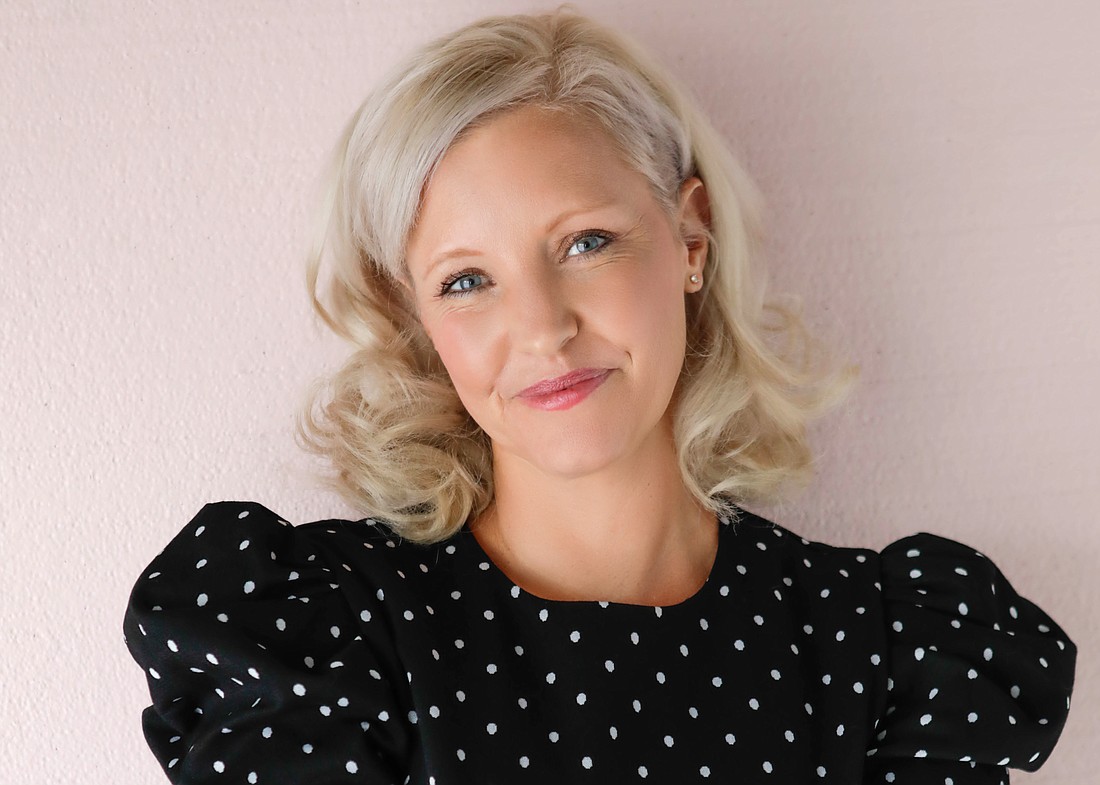- March 12, 2025
-
-
Loading

Urbanite Theatre makes its home in Sarasota’s urban core. Its flexible performance space seats around 65 people. Its fearless performances push the limits of live theater. That was Brendan Ragan and Summer Dawn Wallace’s goal when they founded the company in partnership with Harry Lipstein in 2014.
In the years that followed, Wallace and Ragan took the road less traveled as Urbanite’s co-artistic directors — and never played it safe. They staged edgy, risky, contemporary plays like “Chicken Shop,” “Isaac’s Eye” and “Woman Laughing Alone with Salad.”
Urbanite’s “Modern Works Festival” gave a voice to emerging female playwrights. Urbanite’s internships incubated a full spectrum of theatrical talents. The troupe’s dual commitment to art and artists paid off with outstanding theater on stage and invaluable theatrical experience off stage.
Thanks to that winning combination, Urbanite Theatre carved out a niche for itself in Sarasota’s fiercely competitive live theater scene. Keeping that niche meant a lot of hard work for both artistic directors. Wallace's job got even harder last spring when Ragan accepted a position as artistic director at Metropolis Performing Arts Centre in the Chicago region.
Before Ragan resigned, Wallace had been Urbanite’s co-artistic director for nearly a decade. Now, Wallace is Urbanite’s artistic director — period. What does she have in mind for the company? Here’s what she told us.
Yes and no. Urbanite’s always taken new directions. That’s baked in our DNA. Contemporary theater’s always changing — and we change with it. That’s been our goal from day one.
Definitely. Creating a “black box” space for contemporary theater was what we wanted, and that’s what we did. But it’s not a one-and-done kind of thing. By definition, contemporary theater is a moving target. A play that was edgy in 2014 can still have power. But what’s edgy in 2023? That’s what Urbanite will be going for. And it’s the raison d'être of our 10th season.
The power of human resilience is the only common thread — but that wasn’t the basis of our play selections. Our primary focus was championing new work and artist-first storytelling. We only noticed the shared theme after we put the season together.
Exactly. (Laughs.) Our 10th season isn’t about “theme.” It’s about showcasing Urbanite’s commitment to new play development and supporting up-and-coming playwrights like Katie Bender, Brenda Withers, Terry Guest and Adam Rapp.
This season, we’ll be celebrating all the talents we’ve partnered with. That’s not limited to writers. Over the last 10 years, Urbanite has also nurtured directors, actors, sound and lighting designers — you name it. We’ve put so many young apprentices and interns on the path.
That’s the Urbanite stamp. And the whole point of our intern program. So many outstanding artists got their start here.
I am. But it’s bittersweet. It means letting go. We nurture young talent and get them ready for their next big adventure. They cut their teeth working here at Urbanite. When they move on, it’s hard for me. I know I’ll have to start from scratch again — and find more young talent to mentor. It’s a never-ending cycle, but more than worth it!
That’s true. But I think we’re moving in the right direction. In the 10 years of Urbanite’s existence, we’ve evolved to be an incubator — and not just on the creative talent and development side. We also incubate audience involvement. “Judith” is a perfect example of that.
Well, it’s a one-person show — and audience feedback is the heartbeat of any solo show. When an actor like Livy Scanlon takes the stage, she’s constantly in tune with what’s working and what isn’t. So, if you’re sitting in the audience, your reactions help shape her performance. You’re not just watching a show — you’re more like Livy’s scene partner. Like it or not, you’ll be a participant.
Yes, it is. And audience participation is a constant at Urbanite. We premiere a lot of new plays. Before that, we’ll do readings in the workshop process. Audience talkbacks happen at every phase of the development process. It’s priceless information to the playwright. And they’re a great way to engage our audience.
By any means necessary. If there’s a way to make theater more accessible, we’ll do it! We’re planning our first ASL (American Sign Language) performance. We’ll be creating a parents' night out with a sitting service (for their kids).
Digital marketing has always been our strong point. We’ll build on that strength with the market opportunities of print media. We’ll also keep making real-world connections. We’ll be physically present at events like farmers markets and festivals. We’ll also network with other nonprofits, form partnerships and do everything we can to get new people in the door.
No. We’re going to get our name out there and make more community connections. We’ll be coming to you. And if you’ve got something to say, we’ll listen.